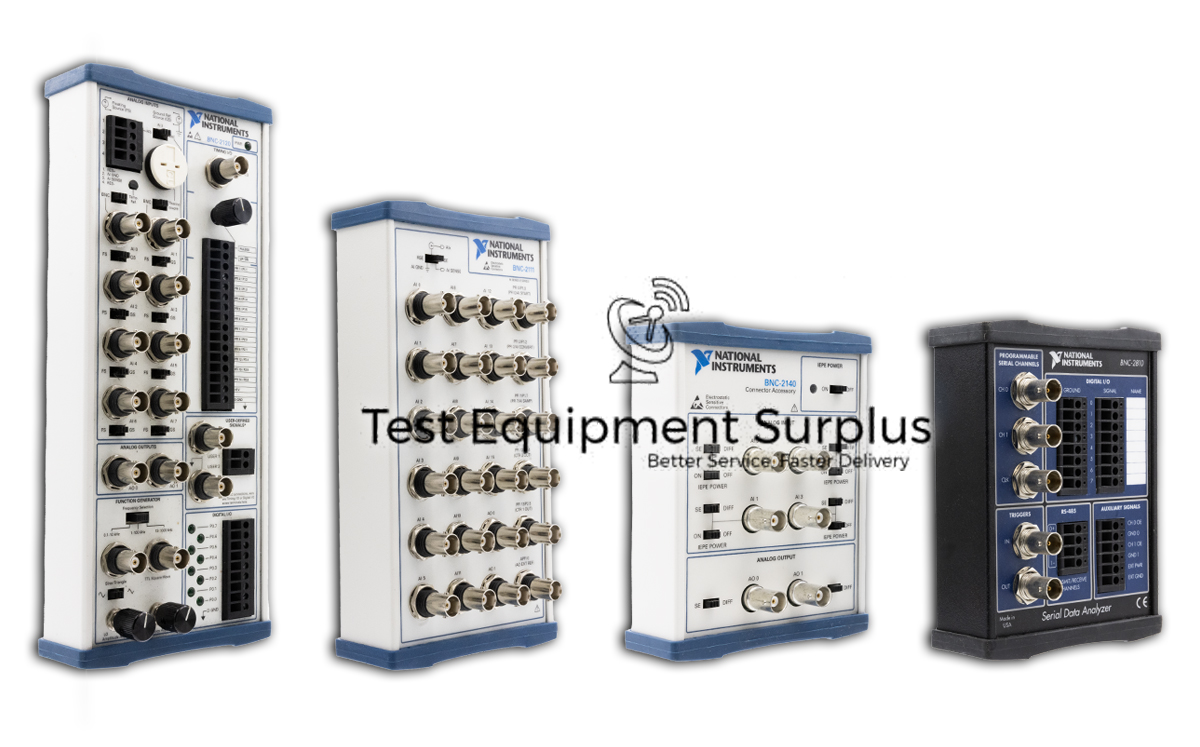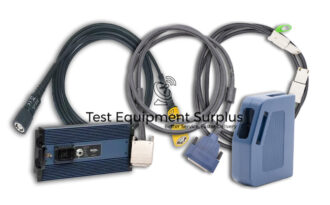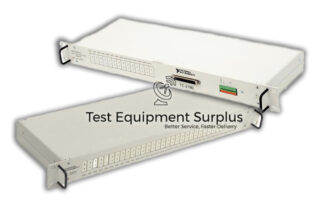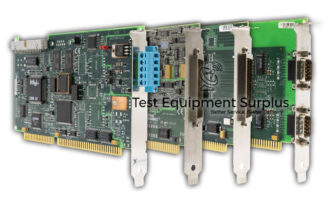Description
The National Instruments BNC-2115 Connector Block, with Part Number 777807-01, is designed to be compatible with E Series devices like the PCI-6033E and PCI/PXI-6071E, among others. This Shielded Connector Block features a robust set of 24 BNC connectors and a two-position screw terminal for connecting digital I/O signals, as well as a 68-pin male I/O connector for extended connectivity options.
It supports single-ended operating modes, both non-referenced and referenced, which allows for increased analog channel count by using each BNC coaxial cable for two single-ended channels instead of one differential channel. The maximum voltage capacity of the BNC-2115 is 42 V, and it requires an SH1006868 cable for operation.
For installation, it comes with options to be mounted on a desktop or DIN rail, although mounting accessories must be purchased separately. The BNC-2115 can be programmed using NIDAQmx driver software, LabVIEW, or LabWindows/CVI, making it versatile for various application development environments.
The physical dimensions of the connector block are 7.5 x 4.125 x 1.38 inches, and it operates optimally within a temperature range of 0 to 70 °C, ensuring reliable performance across a wide range of environmental conditions.
| Specification | Detail |
|---|---|
| Product Name | National Instruments BNC-2115 Connector Block |
| Part Number | 777807-01 |
| Compatibility | E Series Devices (e.g., PCI-6033E, PCI/PXI-6025E, PCI/PXI-6031E, PCI/PXI-6071E, AT-MIO-16DE-10, AT-MIO-64E-3) |
| Connector Type | Shielded Connector Block with BNC Connectors |
| Connection Options | Digital I/O signals via a two-position screw terminal and 24 BNC connectors |
| I/O Connector | One 68-pin male I/O connector |
| Operating Modes | Single-ended mode (non-referenced or referenced) |
| Maximum Voltage | 42 V |
| Cable Requirement | SH1006868 cable |
| Mounting Options | Desktop and DIN Rail mountable (mounting accessories sold separately) |
| Programming Compatibility | NIDAQmx driver software, LabVIEW, LabWindows/CVI |
| Dimensions | 7.5 x 4.125 x 1.38 in. |
| Operating Temperature Range | 0 to 70 °C |
Question 1: What are the operating modes supported by the National Instruments BNC-2115 Connector Block, and what software can be used for programming it?
Answer 1: The maximum voltage capacity of the National Instruments BNC-2115 Connector Block is 42 V, and it requires an SH1006868 cable for its operation.
Question 2: What are the operating modes supported by the National Instruments BNC-2115 Connector Block, and what is its maximum voltage capacity?
Answer 2: The National Instruments BNC-2115 Connector Block supports single-ended operating modes, both non-referenced and referenced, and has a maximum voltage capacity of 42 V.
Question 3: What is the maximum voltage capacity of the National Instruments BNC-2115 Connector Block, and what type of cable is required for its operation?
Answer 3: The National Instruments BNC-2115 Connector Block can be programmed using NIDAQmx driver software, LabVIEW, or LabWindows/CVI, and it operates optimally within a temperature range of 0 to 70 degrees Celsius.
Question 4: Which types of operating modes does the National Instruments BNC-2115 Connector Block support, and what is its maximum voltage capacity?
Answer 4: The National Instruments BNC-2115 Connector Block supports single-ended operating modes, both non-referenced and referenced, and has a maximum voltage capacity of 42 V.
Question 5: What is the method of programming the National Instruments BNC-2115 Connector Block and what is the operational temperature range for this device?
Answer 5: The National Instruments BNC-2115 Connector Block supports single-ended operating modes, both non-referenced and referenced, and can be programmed using NIDAQmx driver software, LabVIEW, or LabWindows/CVI.




